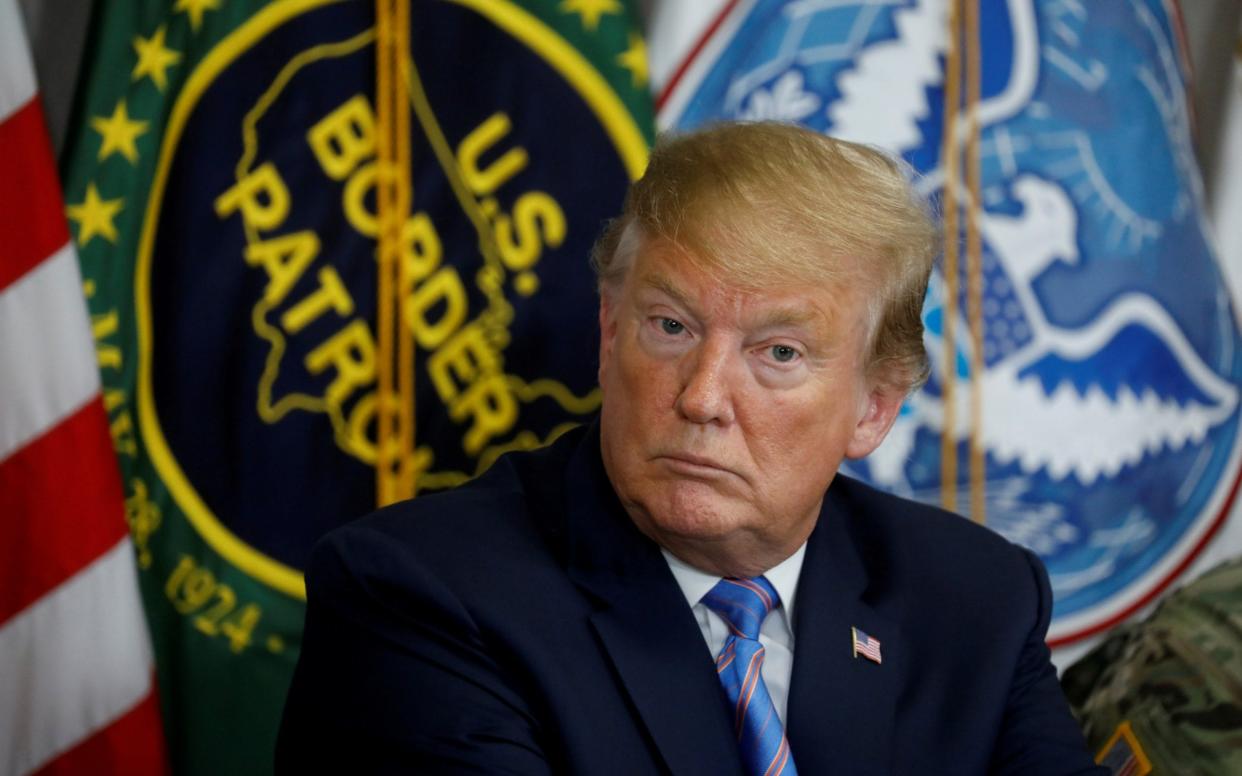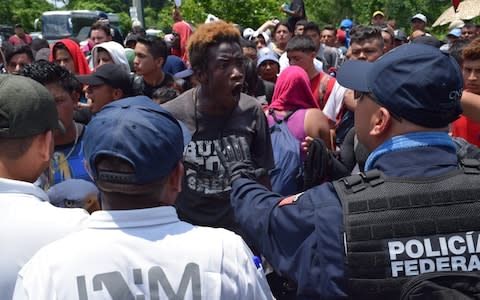Donald Trump cancels Mexico tariffs after deal on border security

Donald Trump has cancelled plans to hit Mexico with major tariffs just days before they were to take effect, touting new promises over reducing illegal migration into America.
The US president had announced that all goods imported from Mexico would be hit with a 5 per cent tariff from Monday, but scraped the move on Friday evening.
“The tariffs scheduled to be implemented by the US on Monday, against Mexico, are hereby indefinitely suspended,” Mr Trump tweeted.
“Mexico, in turn, has agreed to take strong measures to stem the tide of Migration through Mexico, and to our southern border.”
The reversal was welcome relief for both Mexico, which sells $350 million worth of goods into America each year, and US importers who would have had to pay the tariff.
Trade experts had warned that Americans would be hurt through price rises and Republicans congressmen were threatening to vote down the new tariff.
A US-Mexico agreement published after three days of negotiations in Washington DC included promises that the Mexican government had made to curb migrants crossing into America.
It said Mexico would deploy their National Guard throughout the country, including at its own southern border with Guatemala.
Mexico also agreed to increase participation in a Trump administration program called the Migrant Protection Protocols, which sees some migrants wait in Mexico while their US asylum claims are processed.
The joint declaration said that Mexico had agreed to “take unprecedented steps to increase enforcement to curb irregular migration” - speaking to Mr Trump’s initial demand when he announced the tariffs.
For Trump allies, the saga, which lasted less than 10 days, showed the president’s ability to win concessions simply by threatening tariffs and creating leverage at the negotiating table.
But critics questioned Mr Trump’s willingness to risk the US-Mexico trading relationship and his claim of victory over loosely worded promises. They also questioned whether the policies mentioned would prove effective.

Mr Trump’s tariffs were due to rise each month, hitting 25 per cent by October, before they were cancelled.
The initial move was taken with Mr Trump under pressure politically for failing to oversee a marked drop in illegal immigration - one of the central themes of his 2016 presidential race.
He has also largely failed to construct a new wall along the 2,000-mile border between America and Mexico, despite it being one of his most memorable campaign pledges.
A major rebellion among Republican congressmen against the tariff plan had emerged this week, which may partly explain the reversal.
Mr Trump tweeted on Saturday: “Everyone very excited about the new deal with Mexico!” He also thanked Mexican leaders for their part in negotiations.
A delegation from Mexico had been in Washington this week for talks to avoid the tariffs, with Mike Pence, the US vice president, and Mike Pompeo, the US secretary of state, taking part at times.
Mr Pompeo said: “The United States looks forward to working alongside Mexico to fulfill these commitments so that we can stem the tide of illegal migration across our southern border and to make our border strong and secure.”
But Beto O'Rourke, the Democrat 2020 presidential hopeful who grew up in Texas on the US-Mexico border, was dismissive of the announcement.
Mr O'Rourke said: “What we see is yet another example of him trying to be both the arsonist who created this problem... and the firefighter who wants credit for addressing it”
Mexican President Andres Manuel Lopez Obrador, who had planned to head Saturday to the border city of Tijuana to show solidarity ahead of the tariffs, said that his trip would instead be to "celebrate".
"Thanks to the support of all Mexicans, we were able to avoid tariffs on Mexican products exported to the United States," tweeted Mr Lopez Obrador.

